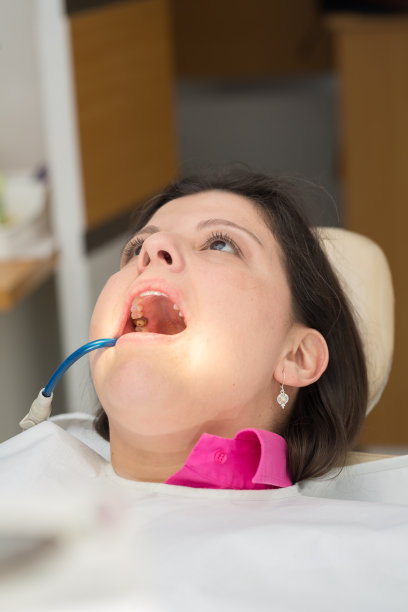Summary: Prior to receiving a dental filling, it is imperative to follow certain essential precautions to ensure optimal oral health and smooth recovery. This article provides a comprehensive overview of the necessary steps one should take before undergoing the procedure. From understanding the filling materials and consulting with the dentist to preparing for aftercare, we delve into the importance of each precaution. Adopting these measures not only promotes better oral health post-treatment but also aids in a quicker and more effective recovery process. By being well-prepared and informed, patients can alleviate anxiety and enhance the overall success of their dental filling experience.
1. Understanding Filling Materials and Options

The first step in preparing for a dental filling is to understand the materials that will be used. Dentists typically offer several options, including amalgam, composite resins, glass ionomer, and resin ionomer. Each of these materials has unique properties that may affect durability, aesthetics, and cost.
Amalgam fillings are known for their strength and longevity, making them ideal for back teeth that endure heavy chewing. On the other hand, composite fillings provide a more natural appearance, as they can be closely matched to the color of your teeth. Knowing these differences can help you make an informed decision suited to your needs.
Additionally, discussing these options with your dentist will provide insight into which material is best for your specific situation. This preparatory step is crucial as it can impact both the effectiveness of the filling and your satisfaction with the results.
2. Consulting with Your Dentist Thoroughly
A comprehensive consultation with your dentist is incredibly important before getting a filling. This is your opportunity to discuss any concerns, symptoms, or underlying conditions you may have. Being transparent with your dentist can help them tailor their approach to meet your best interests.
During this consultation, don’t hesitate to ask about potential side effects, as well as the filling process. Understanding what will happen during the procedure can help to alleviate any anxiety or fear. Your dentist should be able to provide detailed information on what to expect, from the numbing process to the final adjustments.
Moreover, if you are taking medications or have any health conditions, make sure to disclose this information. Your dentist may need to take special precautions based on your medical history, which emphasizes the importance of open communication.
3. Preparing Yourself Mentally and Physically
Mental preparation plays a significant role in the dental filling process. Anxiety about dental procedures can heighten discomfort and tension, making it essential to approach your appointment with a calm mindset. Techniques such as deep breathing, visualization, or even practicing positive affirmation can be beneficial.
Being physically prepared is equally important. If your dentist has advised against eating or drinking prior to the appointment, make sure to follow those instructions diligently. This will help ensure that the anesthetic used during the filling will be effective and won’t interfere with your recovery afterward.
Lastly, arrange for someone to accompany you to your appointment. This support can provide reassurance, and they can help you get home after the procedure, especially if youve received anesthetics that may affect your ability to drive.
4. Post-Procedure Care Guidelines
Understanding how to care for your filling after the procedure is a crucial precaution to ensure optimal oral health. Follow your dentist’s instructions regarding aftercare, which may include avoiding hard foods or certain activities for 24 hours post-treatment.
Additionally, pay attention to any sensitivity in the filled tooth. It is common to experience some level of sensitivity after a filling. However, if the pain persists or worsens, do not hesitate to contact your dentist for advice.
Finally, maintain good oral hygiene practices post-appointment. Gently brushing and flossing around the new filling will help prevent future dental problems while keeping your mouth clean. Regular dental check-ups will also help monitor the condition of your filling and overall oral health.
Summary:
In conclusion, taking essential precautions before getting a dental filling is vital for ensuring good oral health and a swift recovery. From understanding the types of filling materials to consulting your dentist and preparing both mentally and physically, each step plays a critical role. Additionally, adhering to proper post-procedure care will further support your oral health. Being informed and prepared can significantly improve your dental experience.
This article is compiled by Vickong Dental and the content is for reference only.
Vickong Dental
Vickong Dental is a large medical group established in Hong Kong in 2008 by professors from well-known medical universities in Guangdong and Hong Kong, as well as medical doctors from key national '985' universities (including Master's supervisors and senior professors). The chain of branches brings together expert dentists with PhDs and Master's degrees from Hong Kong and Mainland China, committed to providing high-quality dental treatment.
"Vickong Dental Practices the University Motto of 'Healing and Serving Society,' with a Stable Operation for Sixteen Years. It Has Been honored with Hong Kong Enterprise Leaders's Choice,' and is a Global Trusted Implant Center for the Nobel Implant System. Recommended by Hong Kong Metro Broadcast and Guangdong Television, it Serves Customers from Over Thirty Countries and Regions, Gaining the Trust and Favor of Citizens from the Guangdong-Hong Kong-Macau Greater Bay Area and Surrounding Cities.

Thousands of customers' unanimous praise
The most recognized and highly recommended dental service by customers in the Guangdong-Hong Kong-Macau Greater Bay Area
We Ensure You Receive Detailed Care and Attention Here
Hong Kong standards, Shenzhen prices, Your Trusted English-speaking dentists

Vickong Dental Medical-Grade Instrument Disinfection Process
Vickong Dental Medical-Grade Instrument Disinfection Process

Vickong Dental Chain: A Warm and Comfortable Environment for Treatment






Appointment Hours

Q&A
Why choose Vickong Dental?
Vickong Dental practices the university motto 「Medicine to Benefit Society」, with each branch bringing together highly qualified dentists with doctoral and master’s degrees from Hong Kong and the Mainland, and has maintained seventeen years of steady operation。Recipient of 「2024 Hong Kong Enterprise Leaders Brand」, 「2025 Hong Kong Enterprise Leaders Brand」, a Nobel Biocare Global Trusted Implant Center, and a brand recommended by Metro Radio Hong Kong and Guangdong TV。
To date, we have served customers from more than thirty countries and regions,earning exceptionally high word-of-mouth recognition and trusted recommendations from residents across the Guangdong-Hong Kong-Macao Greater Bay Area and surrounding cities
We have eight major branches in Zhuhai、Shenzhen,and a consultation and service assurance center in Hong Kong,so you can book a free consultation at any time for any questions,which is very reassuring.
If I do not accept the quotation after the CT scan, will I be charged??
No! As long as the actual treatment has not started, you will not be charged any fees.
Will there be any additional charges during the treatment process?
No, there won’t be any additional charges. Before treatment begins, we will clearly explain the treatment plan and its corresponding fees. Only after the patient agrees and signs the consent form will we proceed with the dental service.
Can I pay in Hong Kong dollars?
Yes. Vickong Dental accepts payment in Hong Kong dollars. The amount will be converted based on the exchange rate of the day, and the applicable rate will be clearly communicated to you in advance.
Can I reschedule my appointment at any time?
Yes. Please contact us via **WeChat** or **WhatsApp** as early as possible, providing your original appointment time and details, along with your preferred new date and time slot for rescheduling.













